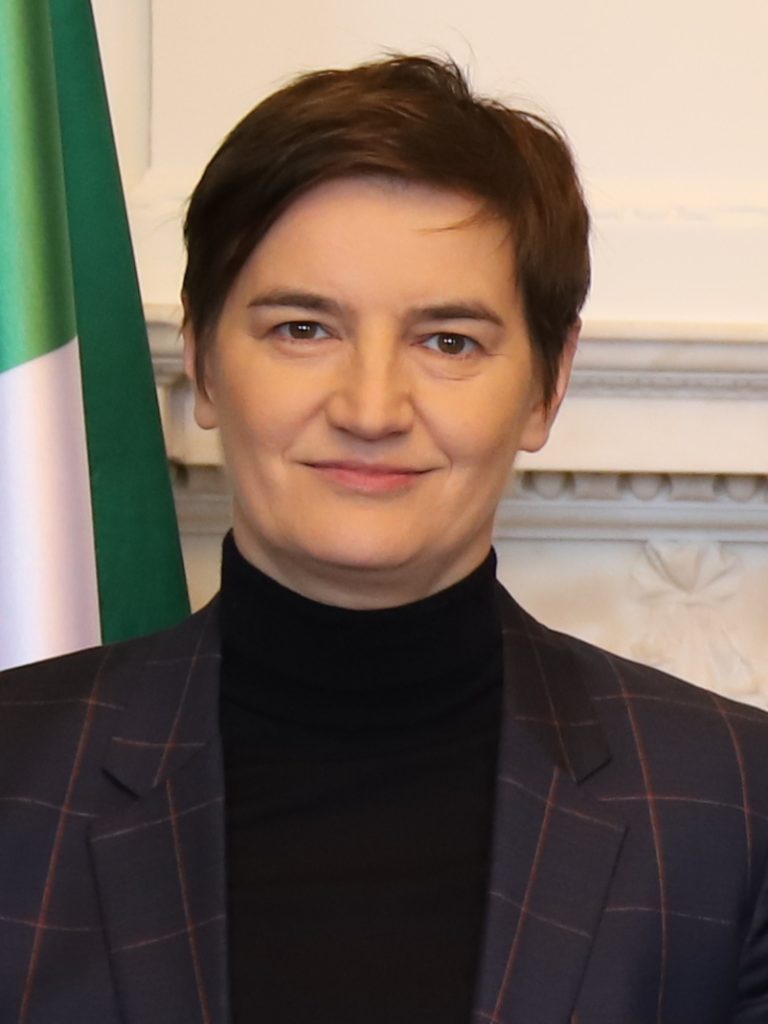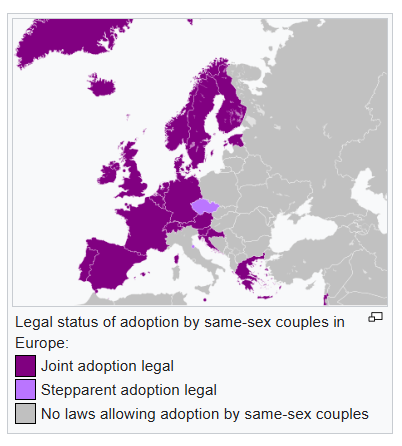2024 LGBTQ rights global update: Some progress, some setbacks in Europe
Fifth in a series of updates about LGBTQ rights internationally, region by region
LGBTQ rights journalist Rob Salerno, an editor for Erasing 76 Crimes, surveys the status of LGBTQ rights and marriage equality in this series, which started with overviews of the Caribbean, Central America and South America.; Africa; Asia; and Oceania/Australia. (Click here to subscribe to his LGBTQ Global newsletter.)

Southeastern Europe
Greece: One of the biggest surprises of the year came from Greece, where newly reelected Prime Minister Mitsotakis fast-tracked his promise to legalize same-sex marriage and adoption within the next four years and actually got it done by February. The law also ended “forced divorce,” which previously required trans people to divorce their spouse if they wanted to legally change gender. Together with several other reforms over the past decade, Greece has quickly shot up the rankings of ILGA’s Rainbow Equality Map of Europe module – it’s now tied with Finland for sixth, behind only Malta, Iceland, Belgium, Spain, and Denmark.
The marriage law hasn’t come without controversy. Various far-right and religious leaders have condemned it, and the far right party surged during EU Parliament elections, leading Mitsotakis to slow down progressive reforms (he’s a conservative, by the way, which likely has mitigated some of the blowback). A constitutional court challenge of the law has been filed, but I think it’s unlikely to go anywhere.
But Greece becoming the first Eastern Orthodox Christian country to legalize same-sex marriage has inspired activists in other parts of the region.
Cyprus: I would have thought that Greece’s legalization of same-sex marriage would have sparked debate on the issue in Cyprus, at least on the Greek section of the island, though not one the breakaway Turkish sectors. But after an initial campaign from the country’s main advocacy group Accept LGBTI, there hasn’t been much news on the subject. The president has previously expressed support for equal marriage, though. The government has instead focused on creating a national LGBTI rights strategy to bring the country in line with EU standards. It also stiffened penalties for hate speech against LGBT people from a €5,000 fine to €10,000.
There was also talk that the government would bring forward legislation to update and simplify the legal gender recognition process, but that hasn’t happened from what I’ve seen.
In the breakaway Northern Cyprus, the biggest development was that the mayor of the capital Nicosia Mehmet Harmanci participated in the annual Pride parade for the first time. There was no progress made on resolving the five-decade-old dispute, in part because of developments in…
Türkiye: The narrow reelection of President Erdogan after he and his party campaigned hard against LGBT rights and “the West” was certainly not a good sign for peace or tolerance in the region.
LGBT organizations and Pride events faced crackdowns in 2024, and a film festival in Istanbul was cancelled after censors banned the film Queer from screening.
Erdogan has held a hardline stance on reunification of Cyprus, fueled strife in Syria and Libya, rattled sabers with Greece, and dragged out Sweden and Finland’s NATO accession until this year, all of which has put the country at odds with the EU. In addition to the deteriorating human rights situation, the country’s ambitions to eventually join the block remain effectively dead.
Albania: There was little progress on LGBT issues, although a lesbian couple staged a symbolic wedding in Tirana.
In September, Prime Minister Rama proposed creating a new “Sovereign State of the Bektashi Order” within Tirana, a sort of Vatican City for an Islamic sect. The proposal hasn’t really gone anywhere amid opposition from the public and some religious leaders. It would require a 2/3 majority in Parliament to amend the constitution to create it, and then recognition from other states, none of which has voiced support.
Kosovo: The government failed to pass its long-promised civil code reform, which would have legalized civil unions and opened the door to equal marriage. The Council of Europe punted its decision on allowing Kosovo to join.
Bosnia-Herzegovina: The EU agreed in principle to open accession talks with Bosnia, but it must meet certain criteria first.
Serbia: Ana Brnabić, Serbia’s longtime openly lesbian prime minister, resigned amid anti-government protests; she became president of the parliament. She had been PM since 2017.
The government says its still considering civil union legislation, first proposed in 2019, but has offered no timeline.
Serbia’s EU integration track seems to have stalled amid clear democratic backsliding.
Bulgaria: A major setback occurred in August, when Parliament passed an “LGBT propaganda” law banning discussion of LGBT issues in schools. Parliament has been basically deadlocked for years as successive elections, including two in 2024, yield no stable majority coalitions. But this was something they could apparently agree on.
Bulgaria joined the Schengen area, deepening its EU integration, although land borders will persist for at least another six months. Bulgaria also plans to adopt the Euro, but the changeover date keeps being pushed back – it’s now planned for Jan 2026 at the earliest, although that still has to be ratified by parliament.
Romania: Romania lost a case at the EU’s top court, which ruled that EU members must recognize any legal gender change performed/recognized in any other EU member state. The ruling impacts the entire bloc. But Romania has been known to ignore LGBT rights rulings, including an earlier one establishing that EU members must grant residency to same-sex spouses of EU citizens.
Romania has been under a political crisis after what appears to be a massive Russian influence op threw parliamentary elections and the first round of the presidential election to a relatively minor pro-Russian far-right extremist party. The constitutional court nullified the presidential election, which has yet to be rescheduled. The upshot is that the other person who advanced to the second round of the original election was progressive who’s moderate on LGBT rights. We’ll see if she continues to have success whenever the election happens.
Romania joined the Schengen area with the same limitations as Bulgaria. It has no immediate plans to adopt the euro.
Croatia: Multiple “outing” scandals this year, as the president outed an opposition cabinet minister, and Zagreb Pride outed ten politicians.
Croatia’s Oscar submission this year is a historical gay epic set in a communist-era prison colony. I haven’t seen it yet.
Montenegro: Nothing new to report, but I will note that ILGA seems to have recalibrated its map module so that Montenegro no longer outranks places like France and the UK on LGBT rights. EU accession is slowly simmering in the background, but the country’s apparent tie to Serbia in negotiations seems to be holding it back.
North Macedonia: Bulgaria is still blocking the beginning of accession talks with the EU over arcane concerns about the constitutional status of the Bulgarian minority and language.




